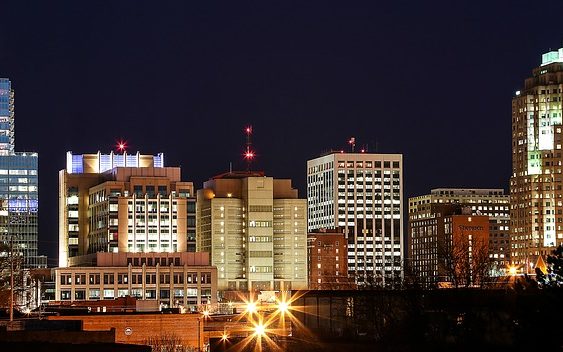- Report: Coastal flooding could threaten 1.4 million homes by midcentury
- Caught on camera | Tornado touches down in Missouri
- Carolina Hurricanes playoff tickets go on sale next week
- Storms kill 6 in the South and Midwest as forecasters warn of catastrophic rains, floods this week
- Weather Impact Alert: Cold front could trigger severe weather in Houston area this weekend | See timeline
Medical challenges mount in Hurricane Helene's aftermath

In the wake of Hurricane Helene, the devastation in Avery
County has left many residents without access to critical medical supplies,
life-saving oxygen and healthcare services. The storm’s impact on
infrastructure, with numerous roads blocked or collapsed, has created an urgent
medical crisis for those isolated in the region.
Canon Memorial Hospital, located in Newland, N.C.,
has been at the forefront of the response. Working in partnership with the
Boone-based organization Samaritan’s Purse, the hospital has expanded its
capacity by adding a 20-bed field hospital, a triage tent and a mobile oxygen
tent. The hospital has also added the capability to refill oxygen tanks for
those who can not travel to the hospital.
Medical staff and volunteers have been working around the
clock to assist residents who remain cut off from essential services.
“Our
staff and the dedication they have shown is unlike anything I’ve ever seen in
my life,” said Stephanie Pate Greer, president of Appalachian Regional
Healthcare.
“We’ve had people riding in on ATVs for over two hours because
they couldn’t make it any other way. We’ve had employees who haven’t gone home
to see their families for five days. Some have lost their own family members
but are still here serving this community.”
The situation is especially dire for residents who depend on
daily medications like insulin. The storm has disrupted both pharmacy access
and mail-order medical supplies, leaving many in desperate need. Emergency
officials are prioritizing efforts to deliver oxygen tanks and critical
medications to those who have been cut off.
Greer emphasized that while the hospital hasn’t been
overwhelmed by patient volume yet, the demands for survival supplies like
chainsaws, fuel and water are rapidly increasing. “We’re seeing injuries and
some trauma, but the intense rescue efforts are really just starting,” she
said.
As primary care services at the Avery campus reopen, the
full scale of medical needs in the county is becoming clear. With rescue
efforts ramping up, responders are racing against time to reach those who are
still stranded without access to food, water or essential healthcare.
Greer reflected on the unprecedented challenges the
community is facing but also highlighted the resilience shown in the wake of
the disaster. “Our hearts are breaking for our families and our neighbors, but
the community response has been unbelievable. We are cooperating with agencies
for the response so that we can help people as we are able to find them.”
For now, the community continues to hold on as rescue teams
work tirelessly to restore access to medical care and basic necessities in one
of the hardest-hit areas of Western North Carolina.
WRAL has compiled a list of organizations raising money, collecting donations and organizing volunteers for the rescue and recovery in western North Carolina. Tap for ways to give to help our neighbors rebuild.